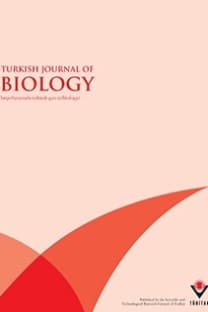The application of mesenchymal progenitor stem cells for the reduction of oxidative stress in animals
Oxidative stress is the primary cause of lowering of the body's immune status. It arises as a result of intense metabolic processes in humans and animals that involve a decrease in antioxidant enzymes activity at the expense of increased production of free radicals and reactive oxygen species (ROS). Consequently, this leads to oxidation of lipids, proteins, DNA, and RNA, causing cell proliferation reduction, faster cell aging, and subsequent degradation. Currently, there is a search for methods to maintain an oxidation-antioxidant balance. The results of many authors' research point to the effectiveness of the use of mesenchymal stem cells (MSCs) in the treatment of various clinical disorders. Numerous studies indicate that, compared to other cells, MSCs have ability to regulate cell adhesion molecules. They also have specific immunogenic and immunosuppressive properties that determine their application in clinical research and regenerative medicine.
Keywords:
Oxidative stress, stem cells, mesenchymal stem cells, animals, reduction,
- ISSN: 1300-0152
- Yayın Aralığı: Yılda 6 Sayı
- Yayıncı: TÜBİTAK
Sayıdaki Diğer Makaleler
Valya VASSILEVA, Miglena REVALSKA, Grigor ZEHIROV, Sofie GOORMACHTIG, Anelia IANTCHEVA
Ahmet Tarık BAYKAL, Özge ÇEVİK, Azize ŞENER, Zelal ADIGÜZEL
Differential oxidative response to fluoropyrimidines in colorectal cancer cell lines
Nazli AYHAN, Pinar GÜLER, Banu Şebnem ÖNDER
Elaiya Raja SUBRAMANIAN, Dineshkumar SUDALAIMANI, Johnson Retnaraj Samuel Selvan CHRISTYRAJ, Kalidas Raaoorthy M, Nino Gopi D, JACKSON DURAIRAJ SELVAN CHRISTYRAJ, KASIMANI RENGANATHAN, SUNDAR KRISHNAN, SUDHAKAR SIVASUBRAMANIAM
İsmail Hakkı AKGÜN, Meltem DALAY CONK, Arzu YILDIRIM
Nursen ÇORUH, Nizamettin ÖZDOĞAN
PAN XU, BIN YONG, HUAN-HUAN SHAO, JIABIN SHEN, BIN HE, QINQIN MA, XIANGHUA YUAN, YU WANG
